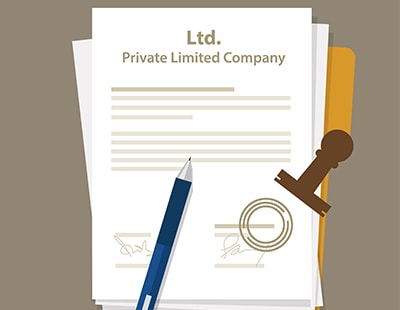
Research by Countrywide agency Hamptons shows that during 2020 some 41,700 new buy to let limited companies were formed.
That’s a record for a single year and an increase of 23 per cent on 2019.
Over a longer term, Hamptons says more companies were set up to hold buy to let properties between early 2016 - when the three per cent stamp duty surcharge on buy to let properties was introduced - and the end of 2020, than in the preceding 50 years combined.
And this means that at the end of 2020 there were a total of 228,743 buy to let companies up and running, again an all-time record.
More than a third of these buy to let companies are based in London; add in those based in south east England, and this comes to 47 per cent of all BTL incorporations.
Buy to lets were the second most common company founded during 2020, beaten only by the number of companies selling goods online or by mail order.
The tax benefits of holding property in a company derive from the ability of landlords to offset 100 per cent of mortgage interest against profits, while those holding a property in their own name can offset just 20 per cent.
This means that someone who owns a £250,000 property with a 75 per cent loan to value mortgage generating £1,000 a month in rent in a company will pay around £1,033 per year in tax. A lower rate taxpayer owning the same property in their own name would pay 42 per cent more or £1,463 each year. And a higher rate taxpayer would pay 274 pr cent more or £3,863.
But whilst those landlords holding their property in a company can offset more costs against their rental income, mortgage interest rates tend to be higher. This means that setting up a company to hold buy to let property tends to benefit higher income taxpayers, or those with multiple buy to let properties.
Aneisha Beveridge, head of research at Hamptons, comments: “We estimate that around half of all rental properties bought today are being put into a company, up from close to one-in-five during 2016. While most of this growth has been driven by larger landlords, smaller landlords - particularly those who are higher rate taxpayers - have also reaped the tax saving benefits from incorporating.
“As the company buy to let market has matured, more mortgage lenders have entered the space. Back in 2016 there were just a handful of lenders who offered company buy to let mortgages, often at a greater premium than today.
“But with more high street names entering the limited company space in recent years, competition has driven down interest rates to within a percentage point of similar products designed for landlords purchasing in their own name.”













%20-%20IMAGE%20Client%20Accounting%20%E2%80%93%20what%20are%20your%20options.jpg)

.png)

%20(002).png)

%20(002).jpg)










Join the conversation
Jump to latest comment and add your reply
Hardly a surprise.... come up with a ridiculously unfair, immoral, anti-business and obviously very anti-landlord measure like trying to tax us on *turnover* instead of profit by not allowing what for most landlords is their biggest business expense, i.e. loan interest, and we're bound to look for ways around it.
Imagine turning a modestly profitable business into a loss making one simply because the biggest perfectly legitimate business expense was suddenly no longer allowable? Welcome to what's left of Britain's Private Rental Sector!
Imagine treating any other business sector like that, for example telling a taxi firm that the costs of fuel and vehicle maintenance are no longer allowable as expenses because, after all, everyone has to pay for things like that!
...or telling restaurants that the cost of food is no longer a valid business expense....
...or for ANY business that the cost of loan interest to pay for their premises is no longer allowable.... but of course for landlords they somehow feel able to do it because, let's face it, to them where the scum of the earth, the sheep to be fleeced, cash-cows to be milked and ultimately lambs to be slaughtered....
...and they delude themselves into thinking they'll win vast numbers of votes by making a show of continuously going for and after us!
...but for some reason they never seem to realise that we just *might* turn out, after they've finished us off, to have been the irreplaceable geese laying golden eggs for them and that they were relying on. Ooops.
For the vast majority of landlords the worst possible option is incorporate their BTL business into a standalone limited, and here's why: -
The Practical Costs
Whilst not in themselves direct costs, being a commercial borrower impacts you in the following ways: -
• incorporation is an all or nothing option, and a virtual one-way street!
• significantly reduced choice of lenders and usually higher interest rates
• full personal joint & several guarantees from all the directors and shareholders (if the company goes bust you remain responsible for the debt); and none are keen on BICTs as they fundamentally weaken the lender’s ability to pursue the debt
• some lenders will take a debenture (legal charge) over the company’s balance sheet, which restricts your ability to use your director’s loan account if at all
• you’re most likely tied in to the first lender and their appetite for further lending, if any, meaning that each new acquisition or remortgage may need a new lender and a new company with all the associated costs
• if property prices fall, thereby increasing the loan to value beyond the point to which the lender originally agreed, you may have to find the cash difference
• restrictions on what you can borrow for, i.e. remortgage to fund lifestyle.
The Transactional Costs
Moving ownership and mortgages from your name to a limited company means a change of legal title and thus a likely remortgage/new lender, with associated costs such as: -
• the value of your time (even if you don’t measure it, your time has a monetary value to your business)
• CGT and SDLT if you don’t qualify for S162 Incorporation Relief (HMRC no longer give pre-clearance meaning that you won’t know now until it’s too late, which can be two years off)
• losses cannot be carried forward
• early redemption charges
• brokers fees, lenders fees, legal fees etc
• likely breach of mortgage terms and conditions if using BICTs
• no realistic/economic way back without re-incurring the above plus no relief from CGT and SDLT.
The Tax Costs
Limited Companies and the individuals within them are taxed up to seven different ways: -
• Corporation Tax (19% but could be uplifted for ‘property/investment’ companies, as was CGT for individuals – the George Osborne incorporation bear trap)
• Capital Gains Tax on personal withdraws of capital resulting from selling assets (up to 28%)
• Directors Loan Account Tax (32.5%)
• Dividend Tax (7.5%, 32.5%, and 38.1%)
• Income Tax (20%, 40%, 45%, and 60% on the slice between £100,000 and £125,000)
• Employees and Employers NIC (12% and 13.8% respectively)
• Inheritance Tax (40% - ‘investment’ companies, i.e. those that hold residential property for 12-months or more for the sole purpose of collecting rents are fully subject to IHT).
Wow Tony - that is really thorough! As a LL with no desire to become Ltd that is a really helpful summary.
Please login to comment